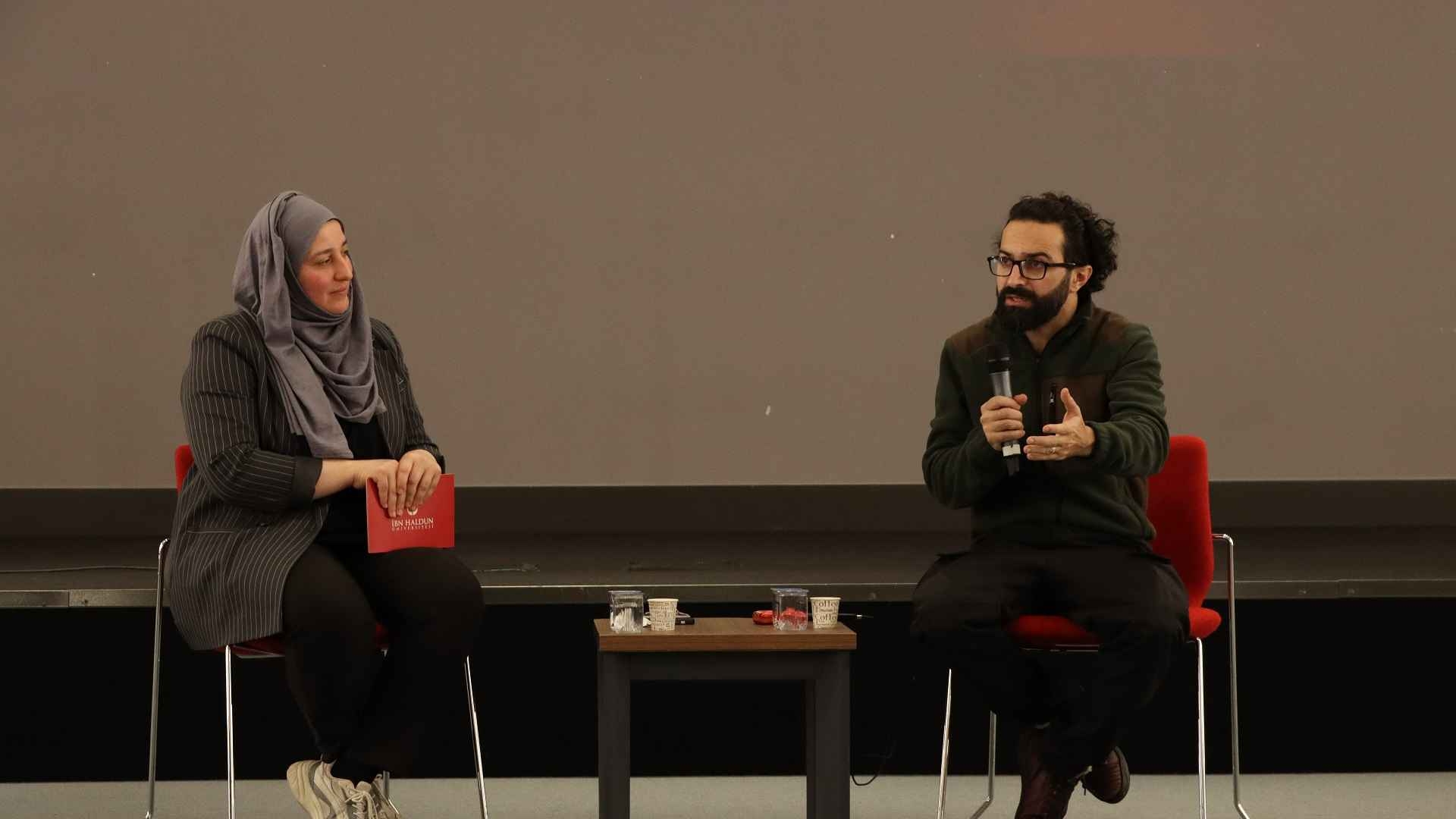


The "Palestinian Cinema" event, organized by the Faculty of Communication, Cinema Club and Jerusalem Studies Society, was held on Thursday, December 28 at the Media and Events Center Event Hall.
In the screening part of the event, the participants watched the film Omar (2013), one of the most popular examples of Palestinian cinema in recent times. The second part of the program was hosted by Palestinian writer and director Nawras Abu-Saleh. In the conversation moderated by Samiha Yılmaz from IHU Media Center, Abu Saleh talked about the past, present and future vision of Palestinian cinema.
Nawras Abu Saleh started the interview by talking about his childhood years in Palestine, and touched upon the brutal acts of Israeli soldiers against Palestinian children, and explained that the traumas of his childhood remain in his mind as memories that are hard to forget.
Emphasizing that life and opportunities are not the same for everyone, the director said that the meaning and content of words vary from geography to geography. Emphasizing the word "normal", Abu Saleh said, "Normal is normal according to whom and what? What is the content of the word normal? Can the "normal" that a Palestinian and a European face in their daily lives be the same? For a Palestinian, normal life is trying to overcome war every day." He drew attention to the chaos in Palestine.
Abu Saleh said that he decided to become a director because he could not see the reality of Palestine in the movies he watched. The director said that he received reactions that the Palestinian issue was a very old and boring story and continued his words as follows: "Truth is not enough to be right. It is necessary to show the truth in a beautiful and appropriate way."
Abu Saleh said that a lot has changed since the first day he started making films, and that society's view of cinema is very different from 10 years ago. He emphasized that when he started filmmaking, people did not believe in the impact of cinema, and that cinema was seen as a strange field that was difficult to make money from. Expressing that this situation has changed today, the director said: "As a society, we have largely gotten rid of this idea. Yes, although an original cinema production still cannot make a lot of money, our productions are now supported." Touching on the difficulties of being a director in a complicated geography like Palestine, Abu Saleh continued his words as follows: "Every single scene we shot was questioned. Imagine how difficult it is to make a movie in such an environment. On the other hand, finding a publisher and distributor to screen the movie is another problem. On top of all this, you can imagine how difficult it is to make money from a movie."
The program also featured shorts and videos prepared by Ibn Haldun University students under the umbrella of IHU Media Center, focusing on the suffering in Gaza. The students' works were highly appreciated by director Nawras Abu Saleh. Abu Saleh said that the work was of high quality and evaluated the messages and visual storytelling of each video with the production team.
In the last part of the event, students expressed their questions and comments on Palestinian Cinema. The program ended with the presentation of a gift to guest director Nawras Abu Saleh.